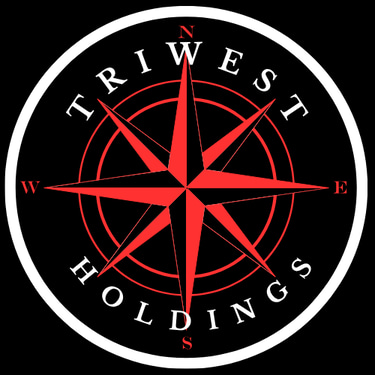Real Estate as an Investment
A quick piece about how real estate can generate wealth in multiple ways, simultaneously.
TriWest Holdings
11/3/20252 min read

The Dual Engine of Wealth: Passive Income and Equity in Real Estate
Real estate has long been touted as a premier path to financial freedom, and for good reason. It offers investors a unique combination of two powerful wealth-building forces: consistent cash flow and compounding equity. When you invest in property, you're not just buying a physical asset; you're securing a dual-purpose engine for your financial future.
1. The Power of Passive Income
The first pillar of real estate wealth is passive rental income. When you rent out a property, the monthly payments you receive from tenants typically cover your expenses—mortgage, taxes, insurance, and maintenance—and ideally leave a surplus. This surplus is known as positive cash flow. This predictable stream of income provides an essential layer of financial stability, allowing you to diversify your portfolio, fund other investments, or simply enjoy supplemental earnings without actively working for them.
2. Building Equity Through Appreciation
While cash flow is crucial for the present, capital appreciation is the engine for long-term growth. Historically, property values in the U.S. have consistently trended upward over time. For example, recent data from the Federal Housing Finance Agency (FHFA) shows national house price appreciation reaching rates above $4.0$ percent annually in early $2025$. As the market value of your property increases, the difference between what you owe on your mortgage and the property's market price—your equity—grows. You build wealth not just by receiving rent, but by simply owning an appreciating asset.
Strategies for Success
How do investors leverage these forces? They typically employ two main strategies:
The Fix and Flip: This short-term strategy involves purchasing an undervalued property (often a "fixer-upper"), investing in strategic renovations to significantly boost its market value (the "rehab" phase), and quickly selling it for a substantial profit. The goal is rapid, lump-sum capital gain.
The Buy and Hold: This is the long-term approach. An investor purchases a property, rehabilitates it to make it rent-ready, and then retains it in their rental portfolio. This strategy is slower but capitalizes on both passive cash flow and long-term appreciation. The rents pay down the mortgage, increasing equity monthly, while the property value appreciates over decades, creating a compounding asset that can ultimately be sold or refinanced for a massive return.
Whether you're looking for a quick profit or a decades-long passive income stream, real estate offers a scalable, tangible, and proven path to building significant generational wealth.
Let our team of experts at TriWest Holdings help you fund your next real estate investment. Call today to discuss your specific scenario.
PHONE: (562) 395-0975
EMAIL: info@triwestholdings.com WEBSITE: triwestholdings.com
Phone
© TriWest Holdings, LLC 2025. All rights reserved.
Triwest holdings, llc
641 ridgefield drive, Claremont, CA 91711
